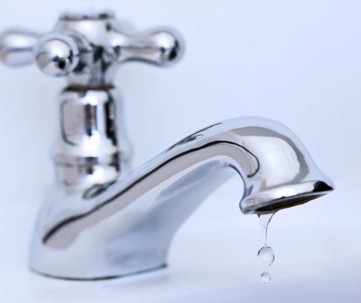No modern home is complete without a functional plumbing system. Maintaining your plumbing system is essential when it comes to preserving the function and safety of your residence.
There are some common plumbing problems that homeowners can expect to encounter at some point. These common issues include toilet clogs, pipe leaks, and leaky faucets. While a leaky faucet may not seemlike a cause for concern, faucet leaks can become costly over time.
Experts estimate that a faucet leaking at the rate of one drop per second can waste up to 3,000 gallons of water each year. Faucet leaks waste water resources and increase your monthly water costs.
By discovering the source of your faucet leak, you can reach out for professional help to repair the problemand restore the efficiency of your home's plumbing system in the future.
1. Damage and Wear
Faucets come in a wide range of styles and designs. Each faucet is manufactured to withstand a certain amount of use, but no faucet can last forever. Damaged and worn parts eventually cause many faucets to spring a leak.
Many leaks can be attributed to a faulty washer within the faucet assembly. A rubber washer helps to create a watertight seal inside the faucet head. If the washer becomes brittle or damaged, it can no longer stop water from leaking through.
An experienced plumber will be able to disassemble your leaking faucet to pinpoint the source of the leak. Damaged or worn parts can be replaced to help your faucet maintain maximum efficiency over time.
2. High Water Pressure
The timing of a faucet's leak can tell you a lot about the cause of the leak itself. Does your faucet have a tendency to leak more when no other plumbing fixtures and appliances are in use? If so, high water pressure could be to blame for causing the leak.
Water pressure that exceeds the manufacturer's recommended maximum can put a lot of stress on your faucets. This is especially true when no fixtures or appliances are in use. Pressure continues to build when a fixture or appliance is not providing a release.
A plumber can easily measure your home's water pressure. If the measured pressure rating is too high, your plumber can install a pressure regulator that will protect your plumbing systemagainst damage caused by excessive water pressure in the future.
Once the water pressure has been reduced, your plumber can repair any pressure-damaged components within your leaking faucet to prevent any future drips.
3. Cracked Pipes
Residential plumbing systems are made up of a network of pipes, appliances and fixtures. Some pipes are visible when you open up cabinets or look behind a plumbing appliance. Other pipes are hidden behind the walls in your home.
Cracked pipes have the potential to cause the nearest faucet to leak. Cracks allow water to escape froma pipe's interior. The release of water that occurs at the site of a pipe crack can alter the water pressure within the pipe itself.
Changing water pressure can affect nearby faucets, causing themto spring a leak. You should carefully inspect all visible pipes for signs of damage when trying to troubleshoot a leaking faucet.
A plumber can utilize special tools to examine hidden pipes and determine if cracks are to blame for your faulty faucet. Cracked pipes can be replaced and fittings can be tightened to help maintain more constant water pressure. This should resolve any pipe-related leaks you detect in your faucets.
Don't let a leaking faucet drive you crazy. Contact PlumbRite for help identifying the cause of your faucet leak.
Additional Service Areas
Omaha, NE
La Vista, NE
Bellevue, NE

